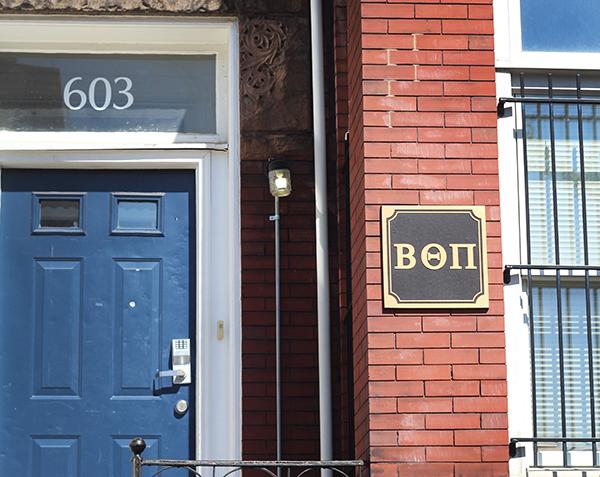A national representative of the Pi Kappa Alpha fraternity confirmed last week that its GW chapter is on social probation, making it the third Greek organization since January to publicly face sanctions.
But Greek leaders and University administrators have declined to release details about the behavior that led to the PIKE sanctions, which could stem from conduct ranging from hosting unregistered parties to hazing.
Administrators have withheld information about the results of investigations into at least six chapters over the last year, which mostly involved complaints of unregistered parties.
That failure to release information comes as the University has pledged to increase transparency in the Greek community and said it would publish a list of all sanctions against student organizations on a GW-run website. Administrators said they do not know when the website will launch.
Center for Student Engagement Director Tim Miller and Office of Greek Life director Christina Witkowicki repeatedly declined to provide information about chapters’ judicial standings this semester. Punishments could range from a few weeks of social probation to a revoked charter.
University spokesman Kurtis Hiatt said Sunday that administrators will wait to provide details about the results of chapter investigations and use the website to post any official information.
At GW, social probation keeps chapters from serving alcohol at events, though members can still participate in intramural athletics and philanthropy events. More severe sanctions could include a chapter losing its charter on campus.
PIKE also lost its house in 2011 after members pled guilty to hazing, underage alcohol consumption and providing alcohol to minors.
Many universities do not publicly release details about ongoing investigations into Greek chapters for confidentiality reasons or to protect anonymous whistleblowers, but Frank LoMonte, the executive director of the Student Press Law Center, said he believed it was “very uncommon” for those officials to not comment on the outcome.
He said when a university keeps sanctions secret, it hurts campus life by allowing rumors to spread instead of acting as a deterrent.
“There doesn’t seem any legitimate purpose at all by secrecy,” LoMonte said. “When you have something that influential and pervasive on the campus, it doesn’t seem like it’s legitimate anymore for the school to treat this like a private matter with no public concern.”
He added that national organizations commonly issue “gag orders,” which prevent chapter presidents from commenting or sharing information.
Communication among chapter leaders, the national organization and the University reveals a tangled hierarchy: Chapter presidents defer to their national organization for comment, and leaders at the national organization often point to the University for specific details about cases.
Michael Church, the executive director of Sigma Chi fraternity, said depending on the severity of a chapter’s conduct, a university may never alert the national organization if it places a chapter on probation. He also said some groups have rules requiring members of Greek life to report their sanctions to a national organization, but said he did not know the protocol at GW.
“Each institution has its own triggers that send up the flag to the international organization or advisers on campus,” Church said. He said he could “neither confirm nor deny” if the the chapter is on probation at GW.
The relationship between universities and members of Greek life is often complicated as well, as administrators struggle to balance regulating chapters and encouraging their growth, said Susan Lipkins, who has spent more than 25 years studying hazing.
At GW, Greek life makes up 30 percent of the undergraduate population, a figure that has tripled over the past decade as social fraternities and sororities have grown across the country.
“There’s a symbiotic relationship between universities and Greek life,” Lipkins said. “They know Greek life creates extra housing that’s often needed, builds bonds back to the university so people donate once they’re alumni. Also, it attracts people to the university.”
GW saw an uptick in the number of students reporting instances of hazing last year, which Greek life student leaders and administrators said is the result of more open conversations about the issue.
Beta Theta Pi was investigated for hazing in December. Alpha Epsilon Pi fraternity was booted off campus in January after it was slammed with 17 counts of hazing, drug and alcohol violations. In the same month, Sigma Delta Tau lost its F Street townhouse for hazing.
“Some investigations take only hours, while others may take weeks depending on the breadth of the concern and the number of people involved,” Dean of Student Affairs Peter Konwerski said last December.






